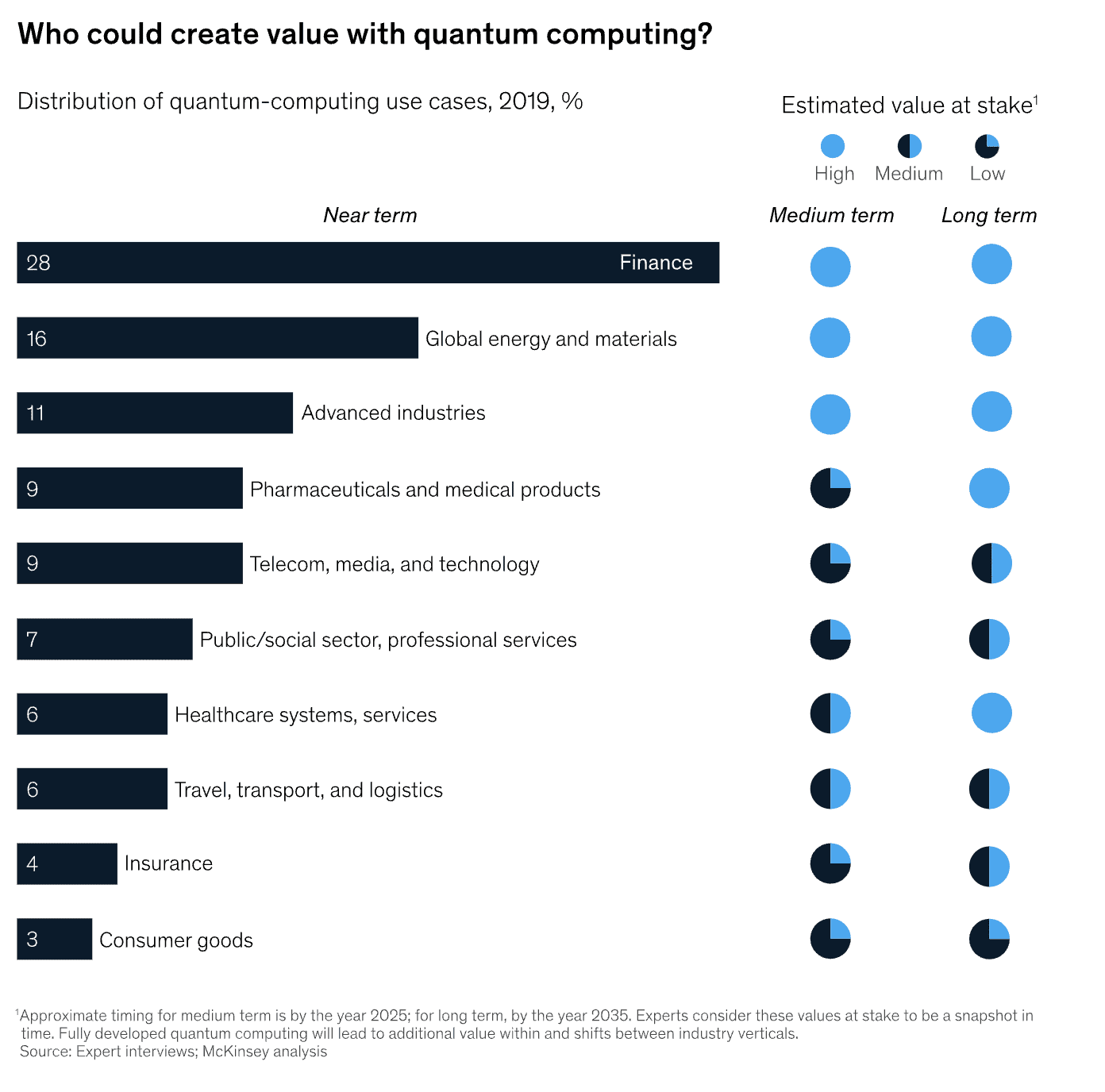“One of the most compelling use of quantum computers are applications such as discovering materials for carbon sequestration or battery design that are a route to solving some of the most intractable problems that humanity faces, and if solved, can save our planet,” said Ilyas Khan, founder, and CEO of Cambridge Quantum Computing and CEO of Quantinuum.
“In a quantum computer, the most important uses are actually not going to be something revolving around fintech although critical issues such as optimization will indeed benefit from the power of quantum computers.”

Described as ‘The Apple of quantum computing,’ Quantinuum is the largest quantum computing company globally, offering full-stack integration of the technology for all sectors.
It is the result of a merger of two UK based companies, Cambridge Quantum Computing and Honeywell Quantum, established leaders in quantum computing.
As well as researching and developing the technology, it offers everything from hardware to software, as well as developing on proto-operating systems.
Working with large businesses, such as JP Morgan Chase, BMW, and Merck, they investigate potential applications.
In conjunction with Total Energies, Quantinuum is working to apply quantum algorithms to improve CO2 capture, potentially disrupting how industries approach the issue of carbon emissions.
In addition, they offer the world’s first and only quantum computing product, the Quantum Origin, aimed at enhancing cybersecurity, and the most popular quantum software development kit, TKET, which is now an open-source application with over 300,000 users worldwide.
Foundational technology such as quantum computing changes everything; it hits reset.”
Ilyas Khan
Explaining quantum computing
Quantum computing brings us to the brink of significant technological shifts and how we regard the world.
“Foundational technology such as quantum computing changes everything; it hits reset,” said Khan. “The reason why so many large financial institutions, from Goldman Sachs and JP Morgan, are rapidly learning about quantum is that they know that these foundational technologies will be eventually used in their business. In some cases, quantum computing will replace existing technologies; in others, it will create new applications.”
So what is it? In the words of IBM, “Quantum computing is a rapidly-emerging technology that harnesses the laws of quantum mechanics to solve problems too complex for classical computers.”
Quantum computers use Qubits, in place of the Bits of classical computers, as their most negligible data unit. The Qubits are governed by quantum mechanics and are subject to quantum phenomena, such as superposition. Superposition refers to the ability of quantum systems to be simultaneously 1 and 0 (or a combination), releasing processors from binary constraints. This enables complex computational possibilities that are not achievable by a conventional computer within a reasonable amount of time, revealing new and more efficient solutions.
Largely pre-commercial technology
Currently, quantum computing is rarely commercially applied. The technology is being investigated and optimized to the point where it can have use in an industrial setting.
“In the analogy of climbing a mountain, we haven’t yet reached base camp. We are pre-commercial at this stage. We are advanced scientific but pre-commercial,” said Khan.
The time scale of creating products for commercial use depends on the sector it will be applied. Khan explained that although an exact timeline cannot yet be determined in terms of finance, it could be within the next decade.
“There are engineering challenges,” he said. “We need to have computers that have the scale and fault tolerance to handle industrial work. The current devices are experimental, so we don’t know the specific timeframe.”
“In that timeframe, the engineering challenge is to scale, get them to a bigger capacity, and make them efficient. The engineering will really get quantum computing up to speed.”
The measure of effectiveness for a quantum computer is quantum volume. Currently, 4,096 is the record for quantum volume and has been achieved by Quantinuum’s computer. The company is committed to increasing this volume by 10 times each year.
“The journey that we are on at the moment is really important. By meeting these milestones, we can be confident that some of the commercial applications are realistically going to occur in the next few years.”

Cyber security, the first breakthrough of commercial application
Cybersecurity has become the first area where quantum computing has been commercially applied, a breakthrough for the field.
As the world moves further towards mass digitalization, cybersecurity has become imperative to protecting data.
The possibility of developing powerful quantum computers is becoming ever more realistic, so enhanced cybersecurity is increasingly critical.
Experts in the field agree that modern-day encryption systems will be easy to hack in the future. Already, cyber security breaches are widely reported.
In 2021, 39% of businesses in the UK reported cyber attacks, a quarter of them occurring at least once a week.
Many suggest that “hack now, decrypt later” methods are being applied, with hackers storing encrypted data for future decryption as the technology becomes more available. Quantum computing enforces cyber security protection through the enhanced random generation of encryption keys.
Quantinuum has been the first to apply the technology successfully, developing their Quantum Origin cryptographic key generation platform.
The platform generates random keys using classical and post-quantum algorithms, enforcing the layers of security that protect sensitive information. It is available for all individuals and institutions that want to encrypt their data.
“It’s for cybersecurity defense,” said Khan. “That’s where banks will benefit immediately. It generates keys that are the strongest keys on the market, and anyone can use it.”
Potential for application
“What quantum computing could do specifically for the financial sector remains to be seen,” said Khan. “The potential applications we can imagine now are probably only a fraction of it will be. There are so many things that we can imagine a quantum computer would be used for in finance.”
The variety and magnitude of big data create increasingly complex processing needs that conventional computers have difficulty with. Quantum computing could help solve this limitation, opening the technology out to various applications within the finance sector and beyond.
The heightened efficiency of quantum computers means that, among other things, patterns can be detected quickly and accurately. Commercial applications are still under investigation, but researchers have said that applying models such as the Monte Carlo Simulation could create many uses.
“A quantum computer allows us to think of Montecarlo simulation much more efficiently than ever before,” continued Khan. “The uses of that are likely to be portfolio optimization, which is extremely critical, and option pricing. Work being done by my colleagues such as Stephen Herbert, represent the state of the art in this area.”
“Our children will benefit from quantum computers because of advances in technologies around disease, around carbon sequestration, around sustainability, around batteries that will last years. These things change humanity. I want to be careful that we don’t forget; that’s what is exciting about quantum, not just fintech.”


